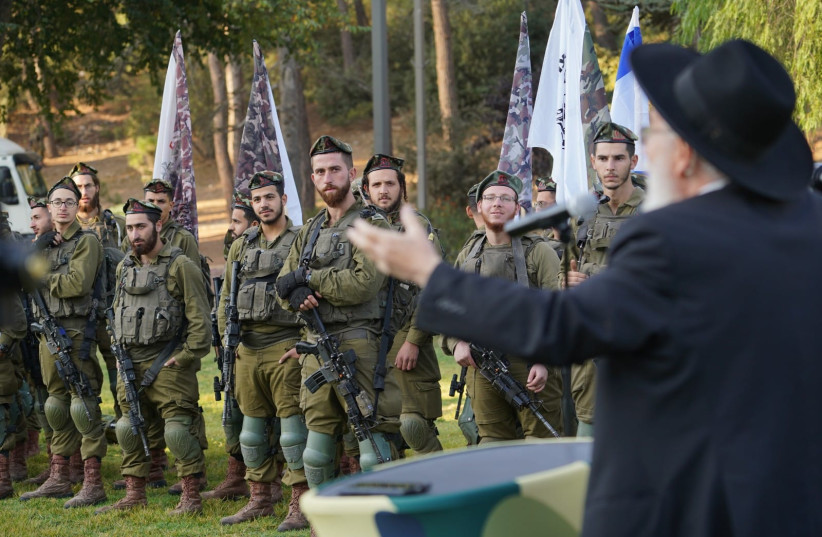An Israeli rabbi from the haredi (ultra-Orthodox) community has drawn criticism for his response to a question regarding the correct esteem in which soldiers fighting in Gaza should be held by the conservative community.
In a post made on X, formally Twitter, on November 19 a man can be heard asking Rabbi Bunim Schreiber “What is the right attitude towards soldiers on the battlefield, gratitude and hishtadlut [doing our part]?”
The rabbi responds by telling the crowd that the situation is the same as one's obligation to garbage collectors, "What is the right attitude and gratitude and hishtadlut for the workers who collect the garbage every morning, is the same question."
Surge in Haredi volunteer enlistment
The Jerusalem Post has previously reported on the surge of interest from the haredi sector in joining the IDF and finding suitable auxiliary roles within the community following the October 7 Hamas massacre.
More than 3,000 haredim have signed up for volunteer service during this time.

“I feel that the country is in danger, and that’s why I come to do my part,” said Tzviki, a married father of three. Like many others, Tzviki, a 27-year-old resident of the mainly ultra-Orthodox suburb of Ramat Shlomo, is over the draft age.
However, it has been questioned whether this phenomenon is reflective of a wider shift in attitudes within the community.
“I work, so it is easier for me,” Tzviki explained. “I’m not sure that if I were younger and still studying at the kollel [institute for full-time, advanced yeshiva studies], I would rush to leave the yeshiva to enlist – because we believe that Torah learning is what sustains the people of Israel in the face of danger.”
